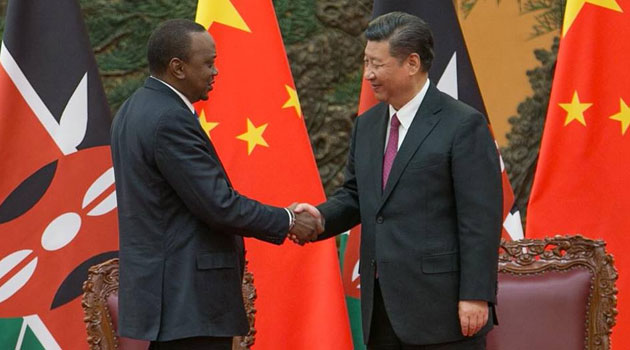Central bank gold buying continues to sizzle.
When the Bank of Uganda announced its intention to purchase gold from artisan, small, medium, and large-scale miners, some players in the precious stones industry wondered why a sudden policy reversal.
It has been close to three decades since the Bank of Uganda stopped the domestic gold purchase. Countries around the world are ramping up their gold reserves; it’s not just a luxury, it is a strategy.
Some studies are finding that gold has regained a solid yet unofficial role in the world’s monetary system. The “shining golden rush” is dictated by the lucrative outlook for the mineral going by its anticipated stronger return.
Bank of Uganda has joined the rush. Gold is regarded as an effective inflation hedge. Gold-buying by Central Banks had become part of the strategies to diversify assets in which their foreign exchange reserves are kept.
Tanzania this month announced that it planned to buy six tonnes of gold. Tanzania began purchasing gold locally in September 2023 to diversify its foreign exchange reserves and stop relying on a single currency.
Globally, central banks increased their gold reserves by a net 39 tons in January 2024, according to World Gold Council data. Other reports indicate that gold buying by central banks will remain hot for at least the next six years.
The “Shining Gold Rush”
Central bank gold buying continues to sizzle.
According to the World Council 2024 Report,“Since March, the gold price has climbed to all-time highs, despite traditional headwinds of a strong US dollar and interest rates that are proving to be ‘higher for longer’.
The report said several factors were behind the recent surge including heightened geopolitical risk and ongoing macroeconomic uncertainty driving safe-haven demand for gold.
“In addition, the continued and resolute demand from central banks, strong Over-The-Counter market investment, and increased net buying in the derivatives market have all contributed to the higher price of gold.”
In August 2023, central banks globally acquired a net of 77 tons of gold totaling 219 tons over the three months.
Michael Atingi-Ego, the Deputy Governor/Deputy Chairman at the Bank said, “The BOU, in consultation with relevant key stakeholders, has initiated a Domestic Gold Purchase Program with the objectives of building the country’s foreign reserves and minimizing risks on reserves investments.”
The Central Bank explained that the gold purchase program would help in accumulating foreign currency reserves and address the associated risks in the international financial markets.
The Bank of Uganda State of the Economy Report 2024 said that the local purchase program would support the government’s ongoing value addition to minerals and the Import Substitution Strategy by reducing the imports of raw gold into the country.
“By purchasing gold directly from the artisanal miners, the BOU will also be supporting the livelihoods of artisanal and small-scale miners, and this has positive spill-over effects on other sectors of the economy in line with the Bank’s mission to support socio-economic transformation,” it said.
The domestic gold purchase option by the Bank of Uganda has received wide international media to the extent that the Deputy Governor, Michael Atingi-Ego had to accept an interview with the BBC on Tuesday morning.
He told the BBC that the purchase would solve what he described as the operational challenges that the Bank of Uganda has been facing.
“Given the increased diversity, frequency, and also shocks that have adversely affected our capacity to fulfill our mandate, we have had to look for ways to overcome all these challenges,” he said.
According to Ating-Ego, some of those challenges have resulted in the dwindling of the Bank’s foreign reserves.
“Because there has been a large buildup of our external debt, debt servicing and there has been a sharp rise in the import of goods and services, a sustained drop in capital flows and also significant pressures on the exchange rate,” Ating-Ego explained.
Some analysts have welcomed the idea saying that the Central Bank is playing in line with its monetary policy requirements. They have indicated that it is likely to boost earnings within the communities where the precious stones are mined.
Ating-Ego seemed to agree with that notion saying the artisanal, small, and medium-scale miner would get what he described as a fair price for the gold.
Apart from diversifying the country’s investment portfolio, the direct purchase of gold is one of the initiatives the Central Bank is trying to tap into to ensure that, the natural resources in the country are used to halt the decline in the foreign exchange reserves.
By mid-April 2024, reports indicated that Uganda’s foreign exchange reserves had dropped by 12% partly due to the repayment of external debts payment.
Early March 2024, Fitch Inc a credit rating firm rated Uganda’s Default Rating (IDR) at ‘B+’ with a negative outlook.
The negative outlook reflected external financing and liquidity pressures related to the reduced availability of concessional external financing and grants.
“Downside risks to fiscal adjustment owing to public financial management shortfalls, notably in revenue collection, will exacerbate financing and liquidity pressures due to high government interest payments and rising external debt service amid tight financing conditions, and a weak reserve position,” it said.
Therefore, the move of the Bank of Uganda to diversify away from the currency reserves into non-currency reserves could be one option.
It is widely accepted that the mining and minerals sector can have extensive economic benefits.
According to the Central Bank, metal and minerals prices also stayed on an upward trajectory, reflecting significant increases in gold and base metals prices.
Gold maintained a three-year rise amid haven flows and central banks buying, registering a 12.4 percent increase in the three months to May 2024 to reach an average of US$2,351.1 per troy ounce in May 2024.
The Bank reported that gold exports more than quadrupled to US$2,803.14 leading to a net gold export of US$139 million after the tax disputes on gold exports that had led to the halting of gold trade were resolved.
The Ministry of Energy in 2022 said exploration surveys indicate that Uganda had gold ore deposits of about 31 million tonnes.
It indicated that an estimated 320,158 tonnes of refined gold could be extracted from the 31 million tonnes of ore. Small wildcat miners or artisan miners dominate the gold sector.
The Minister of Finance, Matia Kasaija in his 2024/2025 budget speech allocated Shs 41.55 billion to undertake mineral development including the fast-tracking quantification and market studies for all minerals.
Part of the money will be spent on the construction of the Busia and Moroto beneficiation centers, and strengthening the Ntungamo and Fort Portal centers. Karamoja and Busia are some of the top gold producers.
Kasaija also hinted at commencing operations of the Uganda National Mining Company that, under the new Mining, will hold 15% free equity in all large and medium mining ventures, as well as have the right to buy up to 20% of extra shares in the mining ventures at the commercial rate.
-URN





